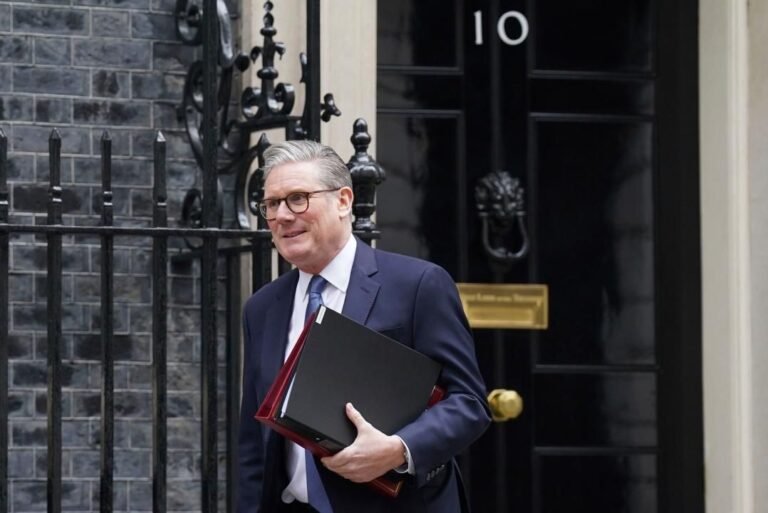British Prime Minister Keir Starmer is set to host a second high-level meeting of world leaders on Saturday to discuss the ongoing war in Ukraine. The virtual summit, referred to by Starmer as the “coalition of the willing,” aims to coordinate military and financial assistance for Ukraine while assessing the feasibility of a potential peacekeeping mission.
The meeting follows a week of intense diplomatic efforts to pressure Russia into agreeing to a 30-day ceasefire. While the United States has proposed a truce, Russia’s response remains uncertain. Starmer has made it clear that any peace agreement must be enforceable, warning that Russian President Vladimir Putin’s demands could serve as stalling tactics.
Global Leaders Join Forces for Ukraine Support
Approximately 25 nations, including European allies, Australia, Canada, New Zealand, and Ukraine, are expected to participate in the talks. Officials from NATO and the European Union’s executive branch will also join the discussion. However, the United States remains absent from these meetings under President Donald Trump’s administration, marking a significant shift in U.S. foreign policy.
Trump’s approach to Ukraine has drawn scrutiny, particularly after his contentious meeting with Ukrainian President Volodymyr Zelenskyy on February 28. The U.S. position has diverged sharply from that of its European allies, compelling leaders such as Starmer and French President Emmanuel Macron to take a more proactive role in coordinating international support for Kyiv.
Starmer Urges Action Amidst Russian Delays
Unlike the first summit held on March 2, this weekend’s meeting will take place virtually. According to remarks released by his office, Starmer will stress the importance of maintaining pressure on Russia.
“If Russia finally comes to the table, then we must be ready to monitor a ceasefire to ensure it is a serious and enduring peace,” Starmer is expected to tell world leaders. “If they don’t, then we need to strain every sinew to ramp up economic pressure on Russia to secure an end to this war.”
The timing of the meeting is critical, as Ukraine faces mounting challenges on the battlefield. While President Zelenskyy has endorsed the proposed ceasefire, Russia’s advances in key areas have analysts speculating that Putin may not be eager to agree to a pause in fighting.
Mixed Signals from Moscow
Putin has signaled tentative support for a ceasefire but has attached several conditions that have yet to be clarified. His cautious stance has led U.S. Secretary of State Marco Rubio to express “cautious optimism” following recent talks between Russian and U.S. officials.
Meanwhile, Starmer remains skeptical of Russia’s intentions. “Putin is trying to delay, saying there must be a painstaking study before a ceasefire can take place. But the world needs to see action, not a study, or empty words and pointless conditions,” he said.
Macron, who has been working closely with Starmer to solidify European support for Ukraine, echoed similar sentiments after speaking with Zelenskyy on Friday. He confirmed that Saturday’s meeting will focus on reinforcing Ukraine’s defenses and pushing for a lasting resolution to the conflict.
Strengthening European Security
Beyond immediate efforts to broker peace, European nations are increasingly aware of the need to bolster their own security. Starmer and Macron have been vocal about urging European countries to increase defense spending and reduce dependence on external powers for military support.
Trump’s shifting stance on Ukraine has further motivated European leaders to take independent action. His administration’s reluctance to maintain previous levels of military aid has fueled discussions on long-term security strategies, particularly within NATO.
While the upcoming meeting is unlikely to yield an immediate breakthrough, it underscores the growing resolve among European leaders to support Ukraine. With Russia gaining ground on the battlefield, the need for concrete commitments and coordinated efforts is more pressing than ever.
“My message to the Kremlin could not be clearer: stop the barbaric attacks on Ukraine, once and for all, and agree to a ceasefire now,” Starmer declared ahead of the meeting.







